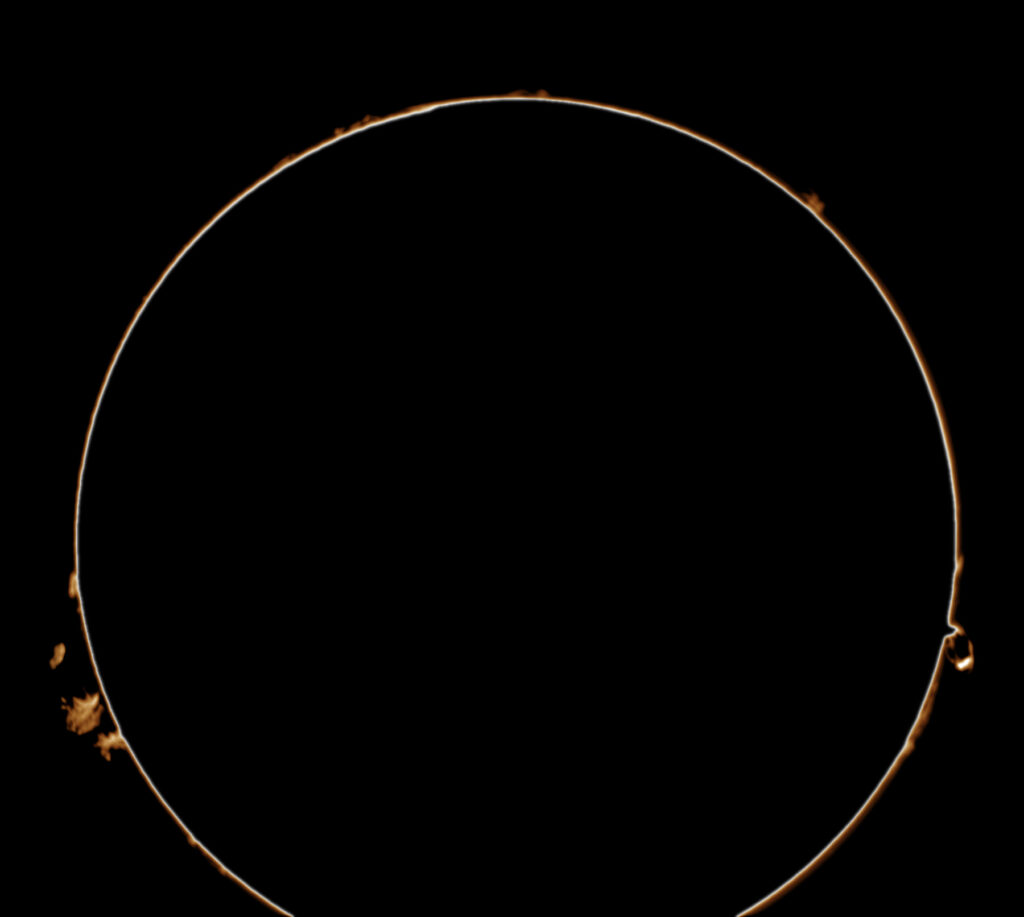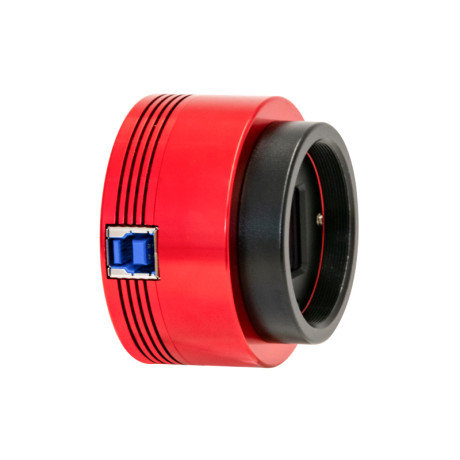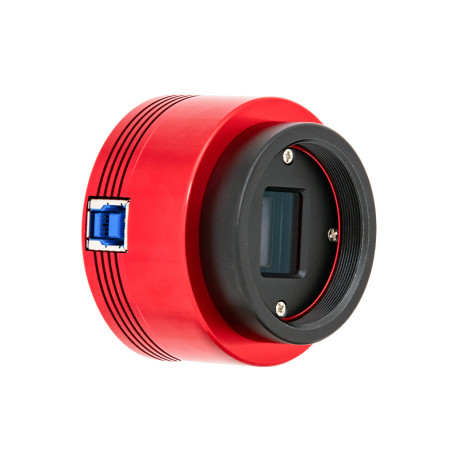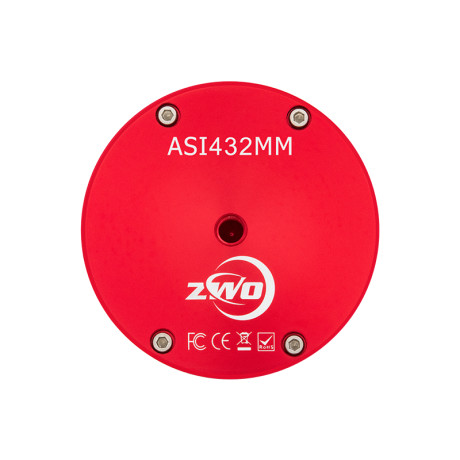ZWO ASI432MM
If you want to take pictures of the Sun or the planets, you’re likely going to use a technique called “lucky imaging.” Briefly, this involves taking a high speed video to get as many frames as possible in a short period of time. Afterwards, you’ll use software like AutoStakkert! to analyze, optimize, align, select, and stack the images to remove noise and – like magic – create something better than the sum of its parts. The industry leaders at ZWO have knocked this one out of the park and created what has to be the perfect (so far) camera for lucky imaging of the Sun (and probably some other stuff). The ASI432MM monochrome USB3 camera.
The image here was taken with an ASI432MM monochrome USB3 camera, a Coronado SolarMax II DST 60mm Hydrogen-Alpha (Ha) Time Machine, and a Tele Vue PowerMate 2.5x Barlow. This Astropotamus is still learning about Ha imaging, solar imaging in general, and post-processing techniques, so it may not be the best image, but it’s pretty good.
Something I didn’t realize until I started my own journey in solar imaging was that you want a monochrome camera rather than a color camera for the better sensitivity. Especially when shooting in Ha, where the only color that comes through the filters is a deep red, the extra color information is basically wasted. So by using a monochrome camera, you get much better detail and can always “add” color in post processing to get the image to look like what you want, which is what I did here.
The images above are from ZWO’s web site, where you can find all of the pertinent specs. Here’s a short list:
- Sensor: 1.1″ CMOS Sony-IMX432LLJ-C
- Back focus length: 6.5mm/17.5mm
- Max fps: 120fps
- Resolution: 1.77Mega Pixel, 1608*1104
- Pixel Size: 9µm
- Exposure Range: 32μs~2000s
- Interface: USB 3.0 Type-B
- ADC: 12bit
- Dimension: 14.5*9.95mm
- Weight: 126g
The image of the Sun at the top of this page was taken in SharpCap from a 100-frame SER video file with a 1.4ms exposure at 175 gain, and the frame rate was about 88fps. This was while connected to a Thinkpad T490 laptop via USB3. The framerate was a little slower than I would have liked, but the end results speak for themselves. The image at the bottom was a 1000-frame SER video taken with a 2ms exposure and 175 gain at 87fps. It was intentionally overexposed in-camera to get the prominences captured, and then pushed in image editing software to make them pop a little bit more. All in all, I love this new camera!




